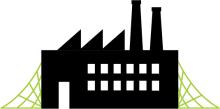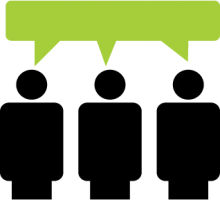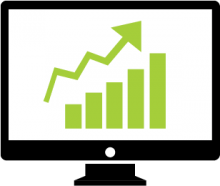

Baltimore City is currently conducting a master planning effort to identify options for improving solid waste diversion, recycling, and disposal in the City. And we need your help.
The City’s Department of Public Works provides solid waste and recycling services to City residents, businesses, schools, and other entities. The City directly manages over 200,000 tons of waste annually, most of which goes for landfill disposal or incineration. However:
 Landfill: The City-owned Quarantine Road Landfill—the only solid waste landfill in Baltimore City—is rapidly reaching its permitted capacity, with approximately 7 years remaining at the current rate of disposal
Landfill: The City-owned Quarantine Road Landfill—the only solid waste landfill in Baltimore City—is rapidly reaching its permitted capacity, with approximately 7 years remaining at the current rate of disposal
 Waste-to-energy: The privately-owned Baltimore Refuse Energy Systems Co. (BRESCO) waste-to-energy (WTE) plant, where about 75% of the City's waste is currently handled, is aging and may not be a viable long-term option
Waste-to-energy: The privately-owned Baltimore Refuse Energy Systems Co. (BRESCO) waste-to-energy (WTE) plant, where about 75% of the City's waste is currently handled, is aging and may not be a viable long-term option
 Recycling: While the City does provide a variety recycling options, the City's recycling rates are among the lowest in Maryland
Recycling: While the City does provide a variety recycling options, the City's recycling rates are among the lowest in Maryland
The time is now for Baltimore to consider its long-term strategy for reducing solid waste generation, offering more options for reusing or repurposing waste materials, increasing recycling rates, and disposing of what’s left in the most economic and sustainable manner. Doing so will not only benefit residents, homeowners, and businesses but will also help support economic growth and prosperity in the City.
We are committed to developing a master plan (the "Less Waste, Better Baltimore" Plan) that outlines a clear and realistic future vision for improving the City’s solid waste recycling program and operations, over both the near- and long-term, with the goal of maximizing waste reduction, reuse/repair, recycling, and sustainable management of materials.
The master planning effort consists of a three-step process:



To create the best plan for the City’s future, we need your input:
 Attend a community meeting: We held two community meetings to gather input on current challenges and potential improvements from local residents, businesses, and community groups. There will be two additional meetings, tentatively scheduled for May.
Attend a community meeting: We held two community meetings to gather input on current challenges and potential improvements from local residents, businesses, and community groups. There will be two additional meetings, tentatively scheduled for May.
 Monitor progress: Progress updates for each step of the Less Waste, Better Baltimore planning process will be posted periodically
Monitor progress: Progress updates for each step of the Less Waste, Better Baltimore planning process will be posted periodically
 Send us your feedback: Email us with questions and feedback
Send us your feedback: Email us with questions and feedback
By working together, we can develop a proactive plan today to help the City evolve tomorrow into a better place to live and work, not only for ourselves but for future generations as well.